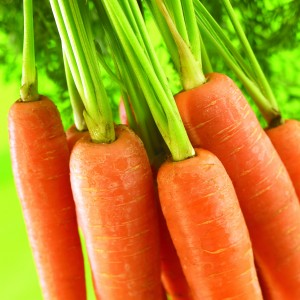Guest Writer for Wake Up World
Your vision is very precious, but you need to maintain it as your visual acuity can dwindle with age. Like most specialized organ systems in your body, the nutrients from the food you regularly consume supply the necessary nutrients for optimum cellular function. And your eyes are no exception.
Many people wonder how to improve vision – or they only ask that question once their healthy eyes have already deteriorated. To protect and maintain your vision, consider adding certain healthy foods to your diet. These healthy foods are key if you want to improve your vision and ensure your healthy eyes stay that way as you get older. Instead of waiting ’til eye troubles begin, start adding these healthy foods to your diet today. Your healthy eyes will reap rewards.
Here are some healthy foods you must include in your diet to improve vision.
[pro_ad_display_adzone id=”110028″]
Turmeric
This popular spice used in Middle Eastern and Indian cooking contains a special pigment known as curcumin. Curcumin has very powerful antioxidant and anti-inflammatory properties which can ensure healthy eyes and help protect various parts of your eyes from free radical damage attributed to UV light. Curcumin can also help prevent cataract formation.
I recommend consuming turmeric as a curry spice in the healthy foods you prepare at least once per day.
Citrus fruits
Citrus fruits contain a large concentration of vitamin C which has very potent antioxidant capability inside the watery environment of the eye. Vitamin C can also absorb harmful free radicals produced from sunlight and help repair the eye with the formation of collagen.
If you want to know how to improve vision and ensure that you have healthy eyes, I recommend eating one to two servings of oranges or grapefruit daily. These citrus fruits should definitely be added to your list of healthy foods.
Billberry
Like the blueberry, bilberries are loaded with antioxidant chemicals known as proanthocyanidins which can absorb free radicals and keep levels of inflammation inside the arteries of the eye under control. That’s why I recommend billberries as one of the healthy foods for healthy eyes.
I recommend eating more berries including bilberries on a daily basis, if you want to know how to improve vision. One to two servings per day is adequate to provide the necessary antioxidant protection to your eyes.
Carrots
 Carrots and other orange- or deeply-colored vegetables and fruits contain chemicals known as carotenoids. One of the more recognized of these is beta carotene. Beta carotene is a pigment which is responsible for the unique color of carrots. It also has very potent free radical absorption capacity and can help protect your eyes from the aging effects of excessive UV light.
Carrots and other orange- or deeply-colored vegetables and fruits contain chemicals known as carotenoids. One of the more recognized of these is beta carotene. Beta carotene is a pigment which is responsible for the unique color of carrots. It also has very potent free radical absorption capacity and can help protect your eyes from the aging effects of excessive UV light.
Make sure your healthy eyes don’t worsen as you age, by including healthy foods like carrots in your diet. Great sources of betacarotene can also be found in sweet potatoes, green leafy vegetables, and broccoli. I recommend that you consume at least one to two servings of carotenoid-rich food on a daily basis.
Oysters
Zinc is an essential mineral for healthy eyes because it plays an instrumental role in the production of antioxidant enzymes which are active in eye tissue. Zinc is a potent free radical scavenger and is found in high concentrations in oysters. In fact, three ounces of cooked oysters provides a walloping 73 mg of zinc! Zinc can also be found in modest quantities in beef and seafood.
For healthy eyes, consuming one to two servings of oysters every week will provide you with all the zinc you need.
Update September 2014
Resources:
Thiagarajan, R., et al., “Antioxidants and cataract,”Free Radic Res. May 2013;47(5):337-45.
Johnson, M.H., et al., “Anthocyanins and proanthocyanidins from blueberry-blackberry fermented beverages inhibit markers of inflammation in macrophages and carbohydrate-utilizing enzymes in vitro,”MolNutr Food Res. July 2013;57(7): 1,182-97.
About the author:
Dr. K.J. McLaughlin has degrees in nutrition, physical education, and is a certified strength and conditioning specialist with an interest in anti-aging medicine. He’s also a chiropractor with 27 years of clinical experience. He has a diverse professional background in clinical management, teaching, health promotion, and health coaching, and brings a unique passion to his work. He has also spent time studying health promotion and the effect that health education has on health outcomes.
Dr. McLaughlin lives and practices the principles of fitness, wellness, and nutrition. He goes to the gym regularly, climbs stairs outside, and consumes a healthy diet.
This article courtesy of www.foods4betterhealth.com
[pro_ad_display_adzone id=”110027″]







